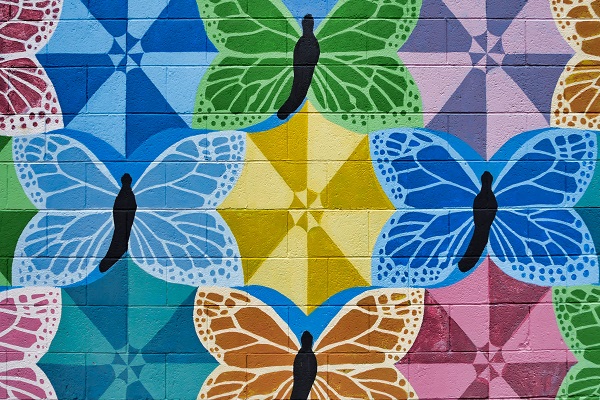
THAT AFTERNOON, I was performing a repetitive task. I was on the internet searching for LGBTQ+ movies. The best, I told myself, as I typed a bunch of search terms into my Chrome browser. The results came out in less than a second. “13 Best LGBT+ Movies of 2019.” Scroll, scroll, scroll. To the bottom. Portrait of a Lady on Fire. Number 3. I bookmarked the page even though I didn’t need to. The title was stuck in my head, together with that of the remaining twelve. However, it wasn’t until the last month of the year before I started to find pirated copies of this movie online. Torrents. I was excited, very. In a few days, I loaded my phone up with enough cheap data subscription to do the job. It may not have been right, but I felt a sense of rightness. And this was because, for the latter part of the year, I had been working so hard at bringing myself to a favourable understanding of two things: (1) desire, and (2) the Self. Answers to the existential questions of What and Who.
Like all pursuits of knowledge, it has been difficult, painful, and slow. But with the help of people and art, I have begun the journey. I say journey because for me, desire is a journey, like identity. The most difficult part of this being the realisation that there is an end that awaits all things, all desires. The end of a screenplay. A finality. The death of all things. The wasteland that awaits all desires. Its apocalyptic eventuality.
Although, I might sound like a modern hedonist, I do not believe that pleasure or happiness are the chief goods in life. Even if those are more often than not the expected outcome of all desires.
Desire is a journey. A driving force that pushes and defines the limits of one’s ultimate existence. But many a time, in the course of existing, I find my heart going dry of all desire. Sexual, existential, whatever. I have a void, a black hole where everything goes down to and is never seen again. A scientific anomaly somewhere in the galaxy of my heart. Its causality is unknown to me. But in such moments, I remind myself of desire—if only to continue existing—with pleasant memories that later turn sour, or with art, and sometimes, people. The ones that know of desire anyway.
I recall my first longings, my first inklings for sexual pleasure. Like all pleasures, it began with an awakening. Next, a conscious wanting. Urgent, unrefusable. Voracious and obstinate. It was my brother I sought out this pleasure with. I was seven and he was nine.
Now, there is a global consensus as to the definition of a “child.” It is anyone below the age of 18. Moreso, there are stringent laws and cultural norms that stipulate what a child can and cannot be seen doing. Fondling your brother definitely falls under the latter. It is also believed in many cultures around the world that a child is an extension of the parents, physically and metaphysically—among cultures that prioritise human relationship and place community in high esteem. But beyond the promise of protection and parental care, the premise for this ageist conceptualisation of a child is almost entirely oppressive. And this is because the foundational systems to which all children are born into is intrinsically so—oppressive, almost in exclusive conflict with the Self and the liberation of the Self. It is for this sole reason that every child looks forward to not only being regarded as an adult by society, but to being independent, in every sense of the word. That was the dilemma of my all too recent childhood. I am 18 now. And legally, some of these constraints have been dealt with. But what happens to past experiences? To past pleasures? Are they invalidated by the new coat of adulthood? Does it make these experiences lesser?
Which takes me back to 2008. Back to Aké and childhood. Back to my family’s apartment in Onikolobo. Back to the unmade bed in our spare bedroom. Back to my brother’s arms. We were home alone, playing rough and bruising each other. You see, for many years, I have doubted the integrity of this memory, like Dumbledore doubted Professor Slughorn’s. But a spate of continuous recollection has caused me to finally accept it as some form of reality. So yes, this really did happen.
We were in bed, my brother and I. We called it wrestling. And after an hour or so of reenacting all the Jackie Chan and WWE moves we had seen on TV, we became exhausted and collapsed on the Mouka foam that was our ring. Actually, I think it was I who tapped out first. Fifunmi was such an intimidating older sibling that I never really stood a chance against him in physical combat. At some point in our theatrical conflict, he had directed a kick to my stomach and was now on top of me, beckoning for a surrender. I had given in like the coward I was. Little Patrick. And now we were both sweaty and aching all over. Four arms splayed in four directions, limbs and torsos intertwined. I could feel the sweat on my skin mix with his. The heat from our bodies, too. We became one. Some sort of Aleph, if I understood Coelho well. I could hear his major organs working in all the tight spaces of his anatomy. His heart, his lungs, his stomach and intestines. I was intrigued. To borrow a term from the lips of the self-righteous Nigerian, I wasn’t corrupt, or anything of the sort. My young impressionable mind had hardly grasped the whole big idea of sexual desire and pleasure. But in a brief moment, I had held tightly to his sweaty body and began to move a little erection against him. It was my first opportunity for pleasure and I had taken it. We had taken it.
That was eleven years ago. Then, I couldn’t as much as move beyond the noisy miniature gate of our flat without my parents’ permission. Now. Ibadan. Eighteen. Travelling around Nigeria on my own, with a trip planned for Senegal in the coming year. But eighteen’s no fun when you have no desire to continue existing. You’ve used it all up in your childhood. Girls. Boys. Writing (that never got published). And dreams that are taking forever to calcify into the sands of time. Everything is just a mere distraction. The trips, everything. You’re running on fumes. I’m running on fumes.
On my eighteenth birthday, a very bleak day in the calendar of time, I woke up from a trip to ASTROWORLD. I’d just realised that SK and Travis went well together. Like Rick and Morty. Like groundnut and loaf bread. Like everything that blends into pleasure. You get the gist. On that day, I didn’t expect to wake up with larger limbs, a broader chest, a thicker penis. I didn’t expect that I would finally be given the keys to all the knowledge in the adult world. None of those theatrics. But I was different now, or at least I was made to believe so.
At eighteen, you become an adult. Legal, like my peers would say it. You can drink. You can smoke. You can finally fuck someone older. But been there, done that. There was no excitement, no interest. No desire. It was existential apathy. So I plunged instead into Hozier’s “Wasteland, Baby!”—the final track on the album of the same name. It was my anthem of love and heartbreak and Armageddon. My whole life mirrored back at me.
Wasteland baby / I’m in love, I’m in love with you / And I love too, that love soon might end.
It’s a song of desire, an unfortunate, apocalyptic fate for all desires. I sang along till I remembered it was my birthday. It was then the gloom re-descended. But I was still the same person, like everyone else on their eighteenth birthday. The truth was simple, glaring. In the purity of stained glass. There was no such thing as being an adult. I’d hit another blunt.
As I write this, my thoughts are as discordant as the piece of music I heard in Portrait of a Lady on Fire. Wild, erratic. Lustful in depth and composure. The very musical embodiment of desire. I desire to finish this writing. To sleep. To not wake up. To cease existing. Again, my heart grows cold. With the Harmattan, no doubt. It beats into a staccato rhythm, ceasing at intervals, running out of breath. It is for this reason and for the fear of poisoning others, that I have mostly retreated into some sort of solitude. But even here, I am haunted with grief and love and religion. Thomas De Quincey said, “In solitude, I felt the liberty you spoke of. But I also felt your absence.”
I think about the lines from Portrait of a Lady on Fire and it reminds me of desire. Of the longing. It draws me so close to memories of pleasure, but not to pleasure itself. In truth, I fear that one lone kiss (or its contextual equivalent) would be a fatal refrain. It is herein that the mischief of time takes precedence, and the idea of fleeting desire and juvenile desire displaces the very sublimity of love and desire. Not everything is fleeting. Some feelings are deep. This brings to mind the very words of Oscar Wilde in his apologia De Profundis: “The supreme vice is shallowness.” Time in no way determines the quality of one’s desire. Its profundity is not a function of time.
What happened in 2008 is one that has haunted me for years. I didn’t find closure until recently. But I fear that over the years, it has slowly poisoned me, tainted my heart in a way I cannot fully describe. Perhaps it is the reason for my lack of desire. For this existential angst. I have no idea. What I do know for sure is that that event damaged the relationship I had with my brother. Sowed enmity between us. It remains an unresolved memory of desire.
I have said a lot of things, but perhaps that which is most relevant is the resolution of desire. As I said earlier, we all assume that the destination of all desires is Arcadia. Many times it is. But at the end of the road is death. Separation from all things, including desire and our very objects of desire. So, in order to live at peace, desire, or its resulting unfavourable consequence, must be resolved. We must understand the memories of the past. The ones that are bound to us. But we must first and truly understand the nature of desire. Even the most bestial of them all, sexual desire.
Portrait of a Lady on Fire draws inspiration from the story of Orpheus in its concluding parts. Many blame stupidity for Orpheus’ second loss of Eurydice, but maybe he chose the memory of Eurydice rather than Eurydice herself? Perhaps his journey to the Underworld was for one last goodbye. A scent, a warm smile, one last gaze, then the fatal refrain.
The ultimate price for desire is always death. And living will always be a compromise above desire. Yesterday we came, tomorrow we die.
ABOUT THE AUTHOR
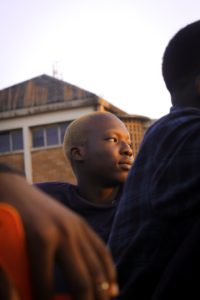 Iretomiwa Xaron is a non-binary queer undergrad student at the University of Ibadan, Nigeria.
Iretomiwa Xaron is a non-binary queer undergrad student at the University of Ibadan, Nigeria.


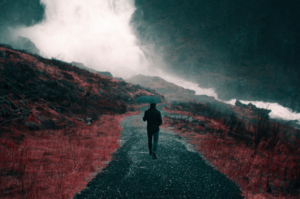
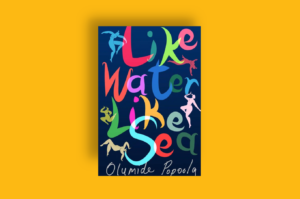
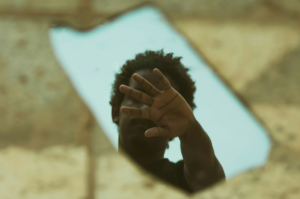

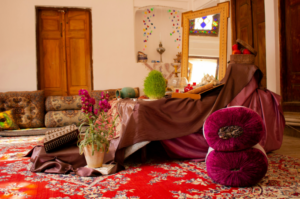
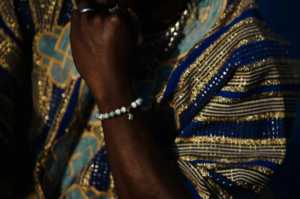

COMMENTS -
Reader Interactions